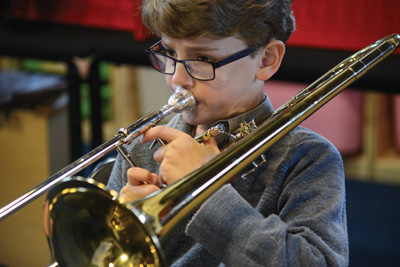
Talent spotting in schools
The difference between scholarships and bursaries
More attention than ever before is being devoted to the significant levels of financial support provided by independent schools, to assist aspirational families on lower incomes. According to the Independent Schools Council’s 2019 census, 34% of pupils educated at independent schools currently receive help with their fees, at a cost of £1bn. The majority of this is provided directly from the schools themselves.
Fee assistance comes in many different shapes and sizes and, as a result, the world of scholarships and bursaries can seem like a minefield to those embarking on the journey for the first time. What can make things even trickier, is that different schools give different names to their individual types of fee assistance. One school might offer a ‘scholarship’ worth 10%, whereas at its neighbour down the road, it might be 50%. It is therefore important to know how to navigate the world of scholarships and bursaries and to establish the difference between them.
At the majority of schools, scholarships will refer to a portion of money off school fees and they will be awarded on merit – the result of a child being an excellent academic all-rounder or brilliant at, for example, art, drama, music, sport, or design technology. They usually (although not always) come with some form of percentage discount on the cost of a child’s overall fees.
Bursaries, on the other hand, are usually hosted by charitable foundations within independent schools and tend to be means-tested places that are offered to an outstanding pupil from a family on a very low income who would never be able to consider providing their child with a private education without the support of a bursary. In most cases, this level of assistance gives life-changing access to talented students who would otherwise never benefit from an independent school education and all that it offers. Being independent, these schools have been able to keep the torch alight for vital areas of the wider curriculum – such as music, the arts, competitive team sports, modern and classical languages – that have so often had to be marginalised in their state counterparts.
The landscape has changed significantly in recent years and it is now more usual for scholarships and awards to attract a very modest reduction in school fees, with larger fee remissions being offered through means-tested bursaries. In the very early stages it is important to establish the detail of the criteria for entry, the maximum scholarship or bursary that a school is prepared to award, and the process that you and your child will need to go through to secure either a scholarship or bursary.
A typical scholarship process could look like this:
• Initial enquiry received by School Registrar who discusses scholarship criteria, any specific examination requirements, for example.
• Families interested in pursuing an application are sent appropriate forms for completion.
• Parents submit completed forms, with child’s most recent school report and reference from current school.
• Application considered and, if successful, child invited for interview.
• Child puts together a portfolio demonstrating their abilities and wider interest in the area for which they are applying for a scholarship.
• Child visits the school with portfolio, is interviewed by the Head, attends interview with the Head of Department and demonstrates their talents, undergoes academic tests, as appropriate.
• Once all applicants are interviewed, candidates are considered by the Head and Heads of Department.
• Scholarships offered according to merit and number available.
While the process for securing a bursary might look like this:
• Initial enquiry received by the School’s Registrar, who discusses the application process and criteria applied.
• Families interested in pursuing their application are sent an ‘Application and Means-Testing Financial’ form for completion.
• The family completes and returns the form with the child’s most recent school report.
• The child’s potential is assessed ‘on paper’ by the Head.
• The family’s financial circumstances are then assessed by the School’s Bursar or an independent financial assessment company.
• If successful, the child’s parents or guardians are interviewed by the Head.
• If successful, the child attends an ‘experience day’ at the school, is interviewed by the Head, is academically assessed and is given the opportunity to demonstrate their particular talents to relevant Heads of Department (maybe art, drama, DT, music or sport).
• If successful, the family might be visited at home.
• If successful, the Head might put forward short-listed candidates with recommendations for consideration by, and confirmation from, Charity Board.
• Foundation Scholarship places offered, as appropriate.
Probably the most important thing for any parent or guardian interested in applying for a scholarship or bursary for their child or charge to remember, is that they should not worry about approaching their school of choice and openly discussing the opportunities available. There is no such thing as ‘saying the wrong thing’ and it may well be that their child is exactly the kind of student that a school is looking for. The important thing to realise is that the schools are as keen to support talented children with bursaries and scholarships – provided
they match their criteria – as parents or guardians are to secure them.
Christian Heinrich is Headmaster at Cumnor House Sussex in Danehill. He set up The Cumnor Foundation which offers 2 means-tested bursaries each year that cover the entire cost of a talented child’s education for ten years from the age of 8 to 18, in collaboration with sixteen independent senior school partners. www.cumnor.co.uk/cumnor-community/the-cumnor-foundation/
For further information please contact Cecilia Desmond, Registrar at Cumnor House Sussex on 01825 792006 or email registrar@cumnor.co.uk. www.cumnor.co.uk










